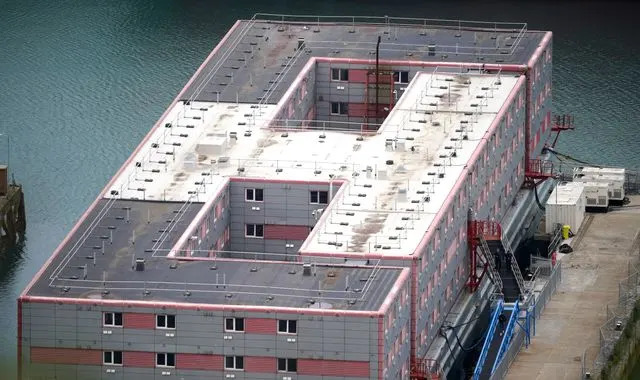Maroosha Muzaffar
Fri, 11 August 2023
India’s outdated British-era sedition law will be entirely abolished, the government has announced.
The government has called the decision a comprehensive reform of the criminal justice system, but experts have criticised it saying it could introduce intricacies and have ramifications for thousands of ongoing trials.
Addressing the Lok Sabha or the lower house of the Indian parliament on Friday, the country’s federal home minister Amit Shah announced the complete repeal of the sedition offence from one of the three forthcoming bills set to replace the current criminal code, known as the Indian Penal Code (IPC).
Crafted by the British in 1860, the IPC has served as the foundation of the nation’s criminal justice system for over 160 years.
Yet, legal experts have pointed out that the government is proposing a new bill that criminalises any acts that threaten the “sovereignty or unity and integrity of India”.
Under the new proposed bill, anybody who “excites or attempts to excite, secession or armed rebellion or subversive activities, or encourages feelings of separatist activities or endangers sovereignty or unity and integrity of India, or indulges in or commits any such act” could face either life imprisonment or imprisonment for up to seven years.
The dated sedition law has been abused by governments till date for decades to shut down any kind of dissent in the country.
Chitranshul Sinha, a legal expert, said the government’s new provision “doesn’t get rid of the British-era [sedition] law. They (the government) have rearranged the provision”.
“It’s just a change of name. Essentially, nothing has changed,” he told the Associated Press.
The three bills Mr Shah introduced are called the Bhartiya Nagrik Suraksha Sanhita Bill, 2023, Bharatiya Nyaya Sanita Bill, 2023 and the Bharatiya Sakshva Bill, 2023.
They are aimed at replacing the existing framework, namely the Indian Penal Code, 1860, the Criminal Procedure Code, 1898 and the Indian Evidence Act, 1872 respectively.
A standing committee has been asked to review all three proposed bills.
Legal analysts voiced concerns that if sanctioned by the legislature, the bills could trigger disruptions and introduce intricacies into the legal system. Experts also pointed out that courts would grapple with several procedural ramifications on the thousands of ongoing trials.
Mr Shah called the outdated 19th-century criminal laws in India as emblems of “gulami [subjugation]”, drawing a parallel to India’s history under British colonial rule.
Additionally, the home minister also disclosed the federal government’s intention to introduce capital punishment in cases of mob lynching.
While introducing one of the three bills to replace the old laws, Mr Shah underscored 313 changes being implemented within India’s criminal justice system.
“The laws that will be repealed... the focus of those law was to protect and strengthen the British administration, the idea was to punish and not to give justice. The new three laws will bring the spirit to protect the rights of the Indian citizen.”
Gang-rape can lead to imprisonment ranging from 20 years to a life term, while the new bills uphold the option of the death penalty.
The opposition and critics of the government have, however, lashed out at the Narendra Modi government, terming the new bills vague and for unveiling them without any discussion or consultation with the public.
One critic pointed out on X, formerly Twitter, that the government has just “repackaged and rebranded” the sedition law in the new proposed bill “with a pinch of nationalism in free India”.
“Wow! Three hugely important laws which will affect all of us, are introduced at the end of this session, without any disclosure or discussion. The colonial wolf of sedition brought back in sheep’s clothing,” Prashant Bhushan, a renowned lawyer and activist, wrote on X.
“This is New Democracy in Modi’s New India!”
Last year, Kapil Sibal, a prominent Indian lawyer and politician, informed the Supreme Court that approximately 13,000 individuals were facing charges under India’s current sedition law.
According to India’s National Crime Records Bureau, out of the 548 individuals charged with sedition from 2015 to 2020, merely a dozen faced convictions.
Under India’s outdated sedition law, numerous scholars, writers and activists have been detained for expressing any kind of dissent.
The country’s Supreme Court in May last year asked the government to reconsider and reexamine the provisions of the law and urged the state to refrain from registering any First Information Reports – the first step to a police complaint – under the said provision of the law.
“The court should respect government, legislature, so as government should also respect the court. We have clear demarcation of boundary,” Kiren Rijiju, Mr Modi’s law minister, said at the time.
The Law Commission of India, in June this year, advocated for the retention of the sedition law, citing concerns over potential severe repercussions for national security and unity if the provision is revoked.
The commission had suggested that the provision – under section 124A that describes the sedition law – be amended instead, “so as to bring about more clarity in the interpretation, understanding and usage of the provision”.























